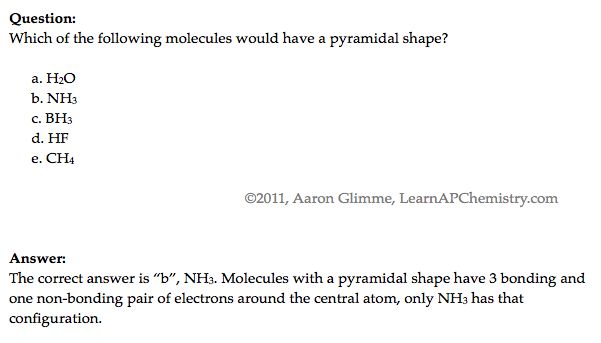Do Cations Gain or Lose Electrons
However both ions now have eight electrons in their outer shell. When an ionic compound.

Ionic Bonding A Love Story L A Cartoon Guide To Formation Of Ionic Bond L Science L Brar Scribbles Ionic Bonding Chemistry Classroom Chemistry Projects
A cation is an ion with positive charge which means it has more protons positively-charged particles than electrons negatively-charged particles.

. Elements that are nonmetals tend to gain electrons and become negatively charged ions called anions. Ions are formed when atoms lose or gain electrons in order to fulfill the octet rule and have full outer valence electron shells. Metalloids and some metals can be can lose or gain electrons.
Fluorine would like to gain 1 electron while Magnesium is more likely to lose 2. A lot of elements we see in nature do not have a very stable EC and they dont exist in their pure form but prefer to combine with other elements too which are trying to attain a stable configuration they can do this by either 1Sharing electrons co. Elements that are non metals tend to gain electron and become negatively charged ions called Anions.
Atoms gain electrons to form negatively charged anions and hence they have larger size. The ions with a net positive charge are called cations whereas those with net negative charge are anions. When they lose electrons they become positively charged and are named cations.
Atoms in Group 7A have 7 valence electrons and gain 1 more electron to get. In general metals will lose electrons to become a positive cation and nonmetals will gain electrons to become a negative anion. Elements that are metals tend to lose electrons and become positively charged ions called cations.
Cations are formed when an atom loses one or more electrons. Elements that are metals are tend to lose electrons and become positively charged ions called Cations. Metals that are located in column 1A of the periodic table form ions by losing one electron.
When they lose electrons they become positively charged and are named cations. Hydrogen is an exception as it will usually lose its electron. Ions are formed when atoms lose or gain electrons in order to fulfill the octet rule and have full outer valence electron shells.
Do cations lose or gain. Atoms lose electrons to form positively charged cations and have cations smaller size. If you look at the diagram the sodium ion a cation now contains only ten electrons and the new chloride ion an anion has eighteen electrons.
However to be able to achieve this elements must either gain or lose electrons depending on how close their electron arrangement is to their closest noble gas eg. Metal that are located in 1A of the periodic table form ions by losing one electrons. For them to become stable they either gain or lose one or more valence electrons and become ions.
The loss of the negatively-charged electrons results in an overall positive charge. When they gain electrons. Answer 1 of 8.
This is not always true as elements such as nitrogen can lose electrons to become positive. The gain or loss gives the ions either a positive or negative charge. When they gain electrons.
Similarly do main group elements gain or lose electrons.

Welcome To Learnapchemistry Com This Or That Questions Molecular Geometry Question Paper

Ninth Grade Lesson Lewis Structures Ions

Vector Logo Design Template Abstract Molecular Structure Symbol Chemistry And Sponsored Advertisement Vector Logo Design Logo Design Template Vector Logo

Periodic Properties Of The Elements Chemistry Libretexts Element Chemistry Electron Configuration Ionization Energy

On The 6th Day God Created Man Man Is A Carbon Based Lifeform Carbon Is A 666 And It Also Naturally Forms Hexagons True Words Mind Unleashed Words

Ionic And Covalent Bonding Cheat Sheet By Fongrsy Http Www Cheatography Com Fongrsy Cheat Sheets Ioni Teaching Chemistry Chemistry Classroom Covalent Bonding

Periodic Properties Of The Elements Chemistry Libretexts Electron Affinity Ionization Energy Electron Configuration

Intro To Ions Cations And Anions Graphing Quadratics Middle School Science Resources Chemistry Worksheets

How To Write A Chemical Reaction In Chemical Equation Form Chemical Equation Chemical Reactions Chemical

Topic 2 Ionic Bonding Transfer Of Electrons Atoms Lose Or Gain Electrons To Become Positively Or Negatively Charged Group 1 2 Elements Los Chimie Cfa

Be Existence Study Hard Now Learning About Ions Ionic Study Hard Study Time Study

الفرق بين الرابطة الأيونية و التساهمية Google Images Blog Posts Google

What Are Ions The Chemistry Journey The Fuse School This Is An Excellent Review Of Atoms That Gain Or Lose E Teaching Science High School Science Chemistry

Science Sketchnote Lewis Dot Structure Science Foldables School Notebooks Sketch Notes

Periodic Properties Of The Elements Chemistry Libretexts Element Chemistry Electron Configuration Ionization Energy

Sensible Study Studinyg Pink Chem Pink Tree Study Notes Study Chemistry Study Organization

Do You Know How To Tell Cation And Anion Ions Apart Chemistry Lessons Chemistry Education Chemistry Basics

Topic 1 Electron Shells 1st Shell 2 Electrons 2nd Shell 8 Electrons 3rd Shell 8 Electrons 7th Grade Science Science Chemistry Chemistry

Periodic Properties Of The Elements Chemistry Libretexts Element Chemistry Electron Configuration Ionization Energy
Comments
Post a Comment